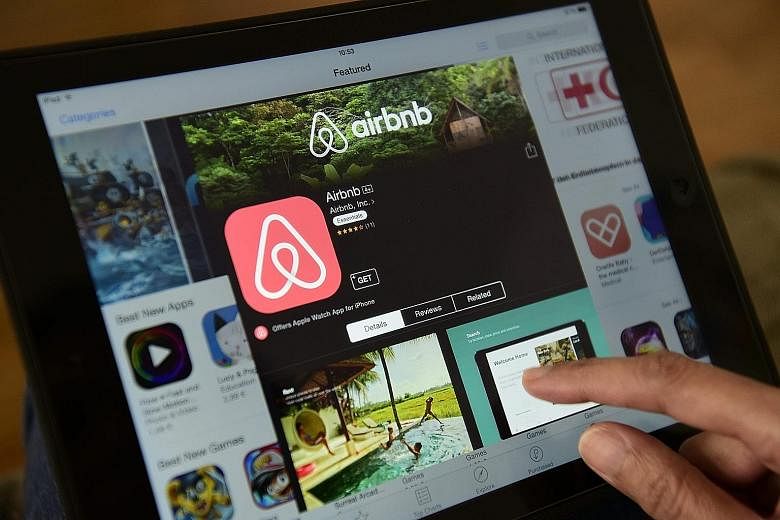Mr Joel Westerheide used to rent out a room in his Berlin apartment on Airbnb, but he hosted his last guest over the weekend after a ban on such private holiday lets went into force in the German capital this month.
"I cancelled the rest of the bookings," said Mr Westerheide, who used to rent out the living room in his one-bedroom apartment to pay off his student loan, and later for extra income.
The new housing law that took effect on May 1 prohibits property owners and tenants from putting up more than half the floor space in their apartments for short holiday lets. Those who flout the law risk a fine of up to €100,000 (S$155,000).
Berlin authorities took the drastic step in a bid to stop home-sharing websites such as Airbnb, Wimdu and 9flats from exacerbating a housing shortage and driving up rents.
The crackdown came after similar action in New York.
The average monthly price of rental apartments in Berlin is nearing almost half - 45 per cent - of the country's median monthly household income, according to a survey by property specialist Immonet. That is far higher than the 30 per cent affordability rule that property owners apply when considering a tenant's solvency.
With rents in Berlin soaring by 50 per cent between 2011 and this year, from €6.17 to €9.29 per square metre for a 60 sq m apartment, officials are anxious to limit the surge.
"Apartments are for living in," said Mr Andreas Geisel, who is Berlin's senator for city development and environment, in a statement. "We should not have to explain, least of all to those looking for apartments in Berlin, why the illegal usage of apartments for commercial purposes should continue to be tolerated."
With property prices relatively low in Berlin compared to other key European capital cities, some speculators have bought apartments to put on the lucrative short-term rental market rather than lease them out to the city's residents.
Berlin authorities estimate that around 12,000 apartments are being illegally used as holiday lets.
But home-sharing websites are fighting back. Wimdu has filed a lawsuit at the constitutional court challenging the new rule in Berlin. It claims the law violates constitutional protection for freedom of occupation and property ownership rights.
Its competitor 9flats, which backs the lawsuit, has moved its operations to Singapore where it keeps its database of Berlin apartment hosts, shielding them from German authorities.
"To pass a law against what people want is fundamentally wrong," Mr Roman Bach, chief executive of 9flats, told The Straits Times.
Sites like 9flats feel that they are being made scapegoats for the failure by city authorities to build sufficient housing.
"There will be a shortage of 220,000 apartments by 2020, and putting 4,000 holiday apartments back into the market is just a drop in the ocean," said Wimdu chief executive Arne Kahlke in a statement.
Mr Bach said Berlin authorities have not tackled the root of the problem. "Numbers clearly show that the negligence of housing policy in combination with increased demand for properties in Berlin are driving up the cost of living," he said. "Rents will not go down if holiday letting is forbidden."
Airbnb defended its business model by releasing a slew of data showing that a typical host earns just €1,800 by sharing his space for 34 nights a year.
"And we hear from countless Berliners who couldn't afford their homes or the city if they could not share their homes," it said.
Others resent the authorities' meddling with the privacy of their homes. "I think I should be allowed to do what I wish with the apartment that I am living in," said Mr Westerheide.
For now, many apartments are still available as holiday lets, as hosts - and district authorities - take a wait-and-see approach before the verdict from the Wimdu case is given.
Others advertise just one room, as is permitted under the 50 per cent rule, and then offer more if asked.

